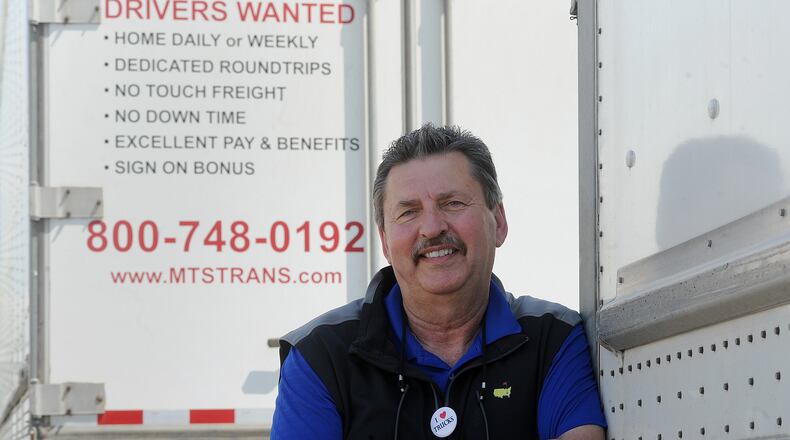Credit: Bill Lackey
Credit: Bill Lackey
He said inflation continues to limit business growth and investment, and that companies want interest rates to decline so they can make investments in the near term.
Trump’s plan to place tariffs on all imports has raised concerns about a resurgence in inflation if he goes through with it. Trump argues that tariffs will raise federal revenues because the money goes into the U.S. treasury, and will boost jobs by encouraging companies to buy domestically.
Tariffs are paid by U.S.-based companies that import foreign-made consumer products, food, merchandise, raw materials, parts for cars and other manufactured goods, and other items. Importing companies may pass on that increased cost to consumers and to other companies that buy the items from the importer.
Chris Kershner, president and CEO of the Dayton Area Chamber of Commerce, said he hopes that Trump will “maintain reasonable tariff policies to not increase costs on businesses and consumers.”
Now that the election is over Kershner said “it’s time to address major policy issues and regulations impacting businesses in the Dayton region.”
One of them is the minimum salary threshold that allows certain salaried employees to be exempt from overtime pay if they make at least $43,888 annually and meet certain job duty requirements, according to federal law. Workers making below the threshold must be paid overtime when they work more than 40 hours a week.
That threshold set by President Joe Biden’s administration rises to $58,656 on Jan. 1, according to the U.S. Department of Labor website.
“The Department of Labor’s increase of the minimum salary threshold for non-exempt employees must be stopped,” Kershner said. “This overreach by the federal government could cripple small businesses.”
Kershner also calls for allowing businesses to take the research and development tax credit in the same year the business incurred the cost. Current law requires the credit to be amortized over 5 years.
“This credit incentivizes business innovation, investments and growth,” he said.
Kershner supports reversing the Federal Trade Commission’s ban on non-compete agreements. The ban announced this year is on hold pending the FTC’s appeal of an August federal court order stopping enforcement of the rule.
“Non-compete clauses keep wages low, suppress new ideas, and rob the American economy of dynamism, including from the more than 8,500 new startups that would be created a year once non-competes are banned,” said FTC Chair Lina M. Khan, in an April news release. “The FTC’s final rule to ban non-competes will ensure Americans have the freedom to pursue a new job, start a new business, or bring a new idea to market.”
Regulations also are a concern of the trucking industry said Kevin Burch, vice president of sales and governmental affairs for Martin Transportation Systems of Dayton.
“Safety is, and always has been, the main topic within the trucking industry. New technology is coming on board each and every month. The industry must be able to sit at the table when deciding mandates on the industry,” said Burch, who is former chairman of the American Trucking Associations and the Truckload Carriers Association.
Issues for the trucking industry include Environmental Protection Agency limits on emissions, as well as rules for electric vehicles and autonomous cars and trucks, Burch said
He also hopes federal tax policy will continue to help businesses purchase new equipment, enabling companies to utilize new technologies for trucks and trailers.
“President Trump is a businessman, and understands the needs of transportation and safe roads,” Burch said. “I feel confident that he will review options to help trucking companies invest in their companies with tax incentives.”
Burch said passage of the bipartisan infrastructure law in 2021 puts the country on track to improve roads and bridges, and he’s hoping Congress will approve additional transportation initiatives.
“My hope is that President Trump will be able to the lower the costs of goods during his term in office, thus improving the economy resulting in more tonnage for our professional men and women truck drivers,” Burch said. “The trucking industry is there to support moving America’s freight safely and on time to an improved economy that lays ahead.”
Follow @LynnHulseyDDN on Facebook, Instagram, TikTok and X.
About the Author



